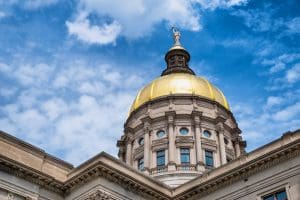The economic crisis caused by the coronavirus pandemic poses a triple challenge for tax policy in the United States. Lawmakers are tasked with crafting a policy response that will accelerate the economic recovery, reduce the mounting deficit, and protect the most vulnerable.
To assist lawmakers in navigating the challenge, and to help the American public understand the tax changes being proposed, the Tax Foundation’s Center for Federal Tax Policy modeled how 70 potential changes to the tax code would affect the U.S. economy, distribution of the tax burden, and federal revenue.
In tax policy there is an ever-present trade-off among how much revenue a tax will raise, who bears the burden of a tax, and what impact a tax will have on economic growth. Armed with the information in our new book, Options for Reforming America’s Tax Code 2.0, policymakers can debate the relative merits and trade-offs of each option to improve the tax code in a post-pandemic world.

To Stimulate R&D Investment, Stop Penalizing it in the Tax Code
In his State of the Union Address, President Biden called for leveling the global research & development (R&D) playing field by increasing federal R&D spending, specifically by asking Congress to pass the bipartisan United States Innovation and Competition Act (USICA).
3 min read
Accounting for the Global Minimum Tax
Double taxation impacts the ability of companies to invest valuable things like improving their supply chains, developing new products, and hiring workers, and it can be fixed if the minimum tax uses a country’s own tax rate.
8 min read
Post-Versailles Declaration: Tax Policy in the Future of European Energy Security
The unified EU signing of the “Versailles Declaration” is a historic break from the past. Russia’s war against Ukraine has made energy (and related tax policies) an even more urgent focus for the EU.
6 min read
Iowa Enacts Sweeping Tax Reform
Even if 2022 sees many tax reforms, the scope of Iowa’s tax relief measures is likely to stand out. With the most recent reform package, Iowa lawmakers have made a significant investment in a more competitive tax climate for an increasingly competitive era.
6 min read
Florida Gas Tax Holiday Has Negligible Benefits—But Other States Seem Ready to Follow
A gas tax holiday may be good politics, but it’s unlikely to achieve its aims. There are far better ways to provide tax relief—short- or long-term—than an inefficient gas tax suspension.
4 min read
Tax Reform Framework Would Improve Nebraska’s Competitiveness
If Nebraska is to create a competitive environment and attract in-state investment, comprehensive tax modernization must be a priority.
9 min read

Georgia Income Tax Reform Would Improve Standing Among Neighbors, Country
In a time of increased mobility and tax competition, a lower rate and simpler tax structure would help Georgia stand out among states. Lawmakers would be wise to consider reforming the state’s income tax to improve the state’s competitiveness.
3 min read
Missouri’s Tax Competitiveness
While Missouri has room for improvement, the state is making waves, positioning itself as an increasingly attractive location for business investment. And as ongoing reforms further enhance the competitiveness of the state’s tax code, more businesses will take notice.
8 min read
A Regulatory Tax Hike on U.S. Multinationals
While much of the policy focus has been on proposals embedded in the Build Back Better agenda, a meaningful tax hike for multinational companies has already been adopted.
1 min read